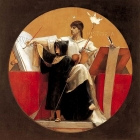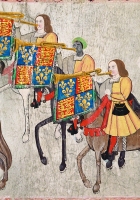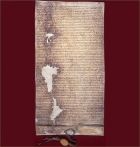KS3 planning (general)
There are many different issues, both practical and pedagogical, subject specific, school-wide and national that must be considered in any teachers’ planning. In this section you will find research, articles, guides and resources that will support you to develop your planning as it relates to teaching history and helping pupils to make progress.
Sort by:
Date (Newest first) | Title A-Z
Show:
All |
Articles |
Podcasts |
Multipage Articles
-

Triumphs Show 146: putting an enquiry together
ArticleClick to view -

Triumphs Show 167: Keeping the 1960s complicated
ArticleClick to view -

Understanding 'change and continuity' through colours and timelines
ArticleClick to view -

Understanding Key Concepts: Diversity
ArticleClick to view -

Unpacking the suitcase and finding history: doing justice to the teaching of diverse histories in the classroom
ArticleClick to view -

Unravelling the complexity of the causes of British abolition with Year 8
ArticleClick to view -

Using narratives and big pictures to address the challenges of a 2-year KS3 curriculum
ArticleClick to view -

Using oral history in the classroom
Multipage ArticleClick to view -

Using ‘Assessment for Learning' to help students assume responsibility
ArticleClick to view -

Vision Mapper
ArticleClick to view -

Where are we? The place of women in history curricula
ArticleClick to view -

Why are you wearing a watch? Complicating narratives of economic and social progress
ArticleClick to view -

Widening the early modern world to create a more connected KS3 curriculum
ArticleClick to view -

Year 8 and interpretations of the First World War
ArticleClick to view -

Year 9 - Connecting past, present and future
ArticleClick to view -

Year 9 use sources to explore contemporary meanings and understandings of appeasement
ArticleClick to view -

‘I need to know…’: creating the conditions that make students want knowledge
ArticleClick to view -

‘Its ultimate pattern was greater than its parts’
ArticleClick to view -

‘One big cake’: substantive knowledge of the mid-Tudor crisis in Year 7 students’ writing
ArticleClick to view -

‘Weaving’ knowledge
ArticleClick to view

